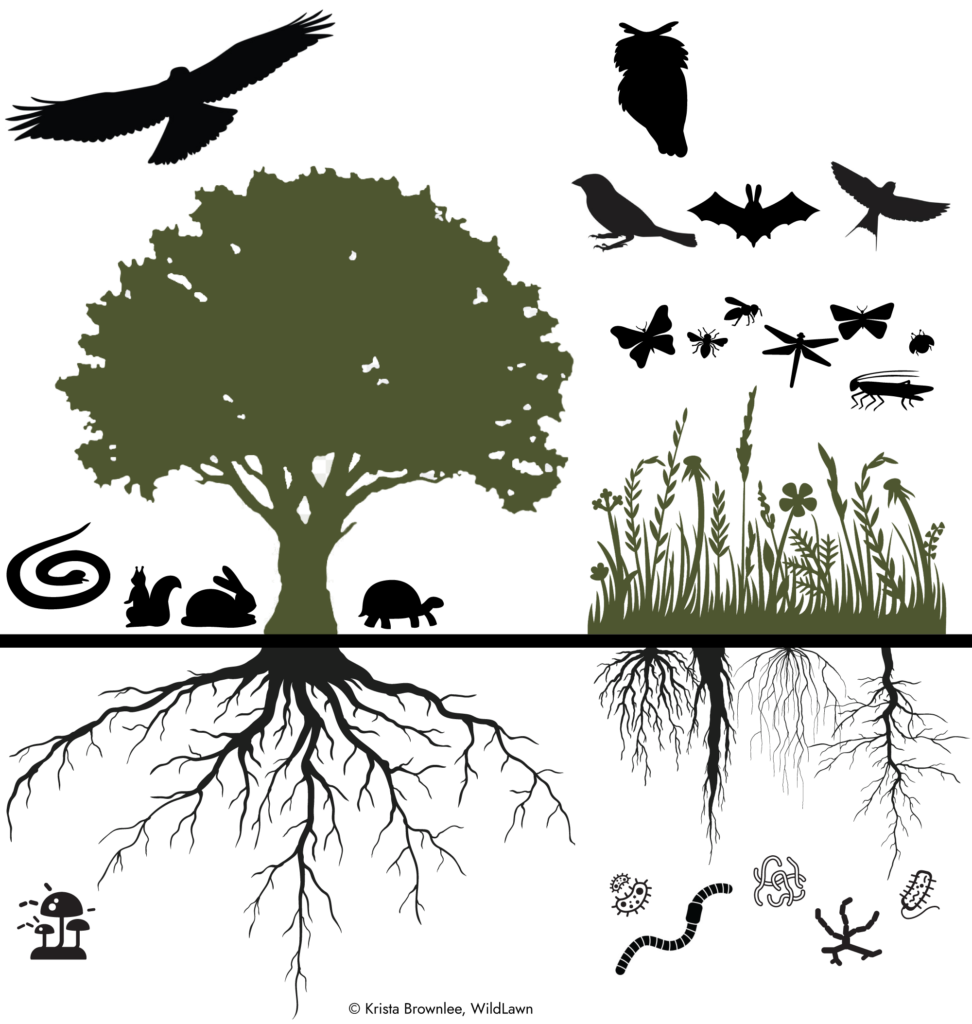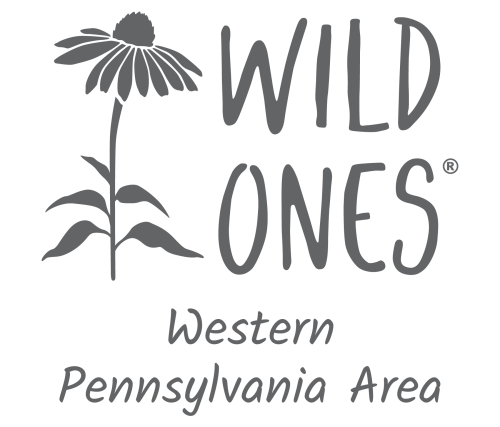Native plants are not only beautiful, they perform important functions. Here are some important facts about native plants:
Easy & Low-maintenance
Native plants are adapted for local climate and site conditions. They have evolved over centuries to survive the natural environment of a region. Native plants are typically healthier and stronger than nonnatives. Once plants as established, they are low-maintenance and typically require no watering or amendments.
Sustainable
Native plants benefit the environment because they don’t require watering, fertilizer, or pesticides. They sequester carbon in the ground, decrease pollution, and control water run-off.
Essential for Wildlife
Habitat
Create habitat for insects, birds, mammals, and more. Native plants provide nesting, foraging, and shelter areas.
The Birds and the Bees
Native plants are the preferred food source for native bees, moths, butterflies, beetles, and other insects which are the preferred food source for native birds.
- 96% of young birds are raised on insects and caterpillars
- 70% of native bees live in solitary nests in the ground and are not aggressive
- 30% of bird populations in the US and Canada have vanished since 1970
Native plants are the foundation of the food web.

Definitions to Know
What’s a native plant?
Native plants occur naturally in a particular region, ecosystem, or habitat without human introduction.
What’s a host plant?
A host plant is very important because it is the ONLY plant a butterfly/moth/bee/beetle will lay their eggs on. The plant then becomes food for the growing caterpillar! These caterpillars turn into butterflies but are also the main food source for baby birds.
What’s an invasive species?
An invasive species is defined as a species that is non-native to the ecosystem under consideration, and whose introduction causes or is likely to cause economic or environmental harm or harm to human health.
